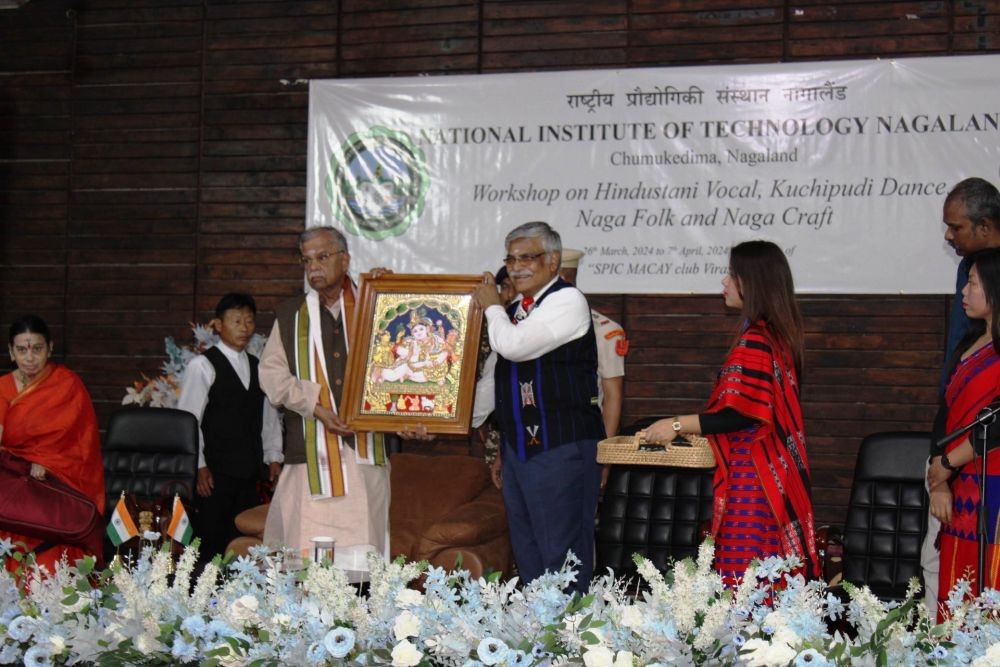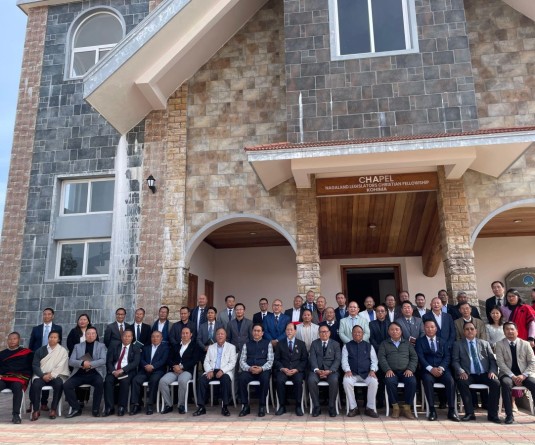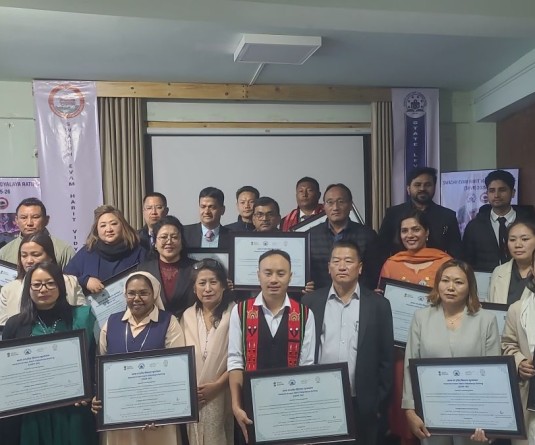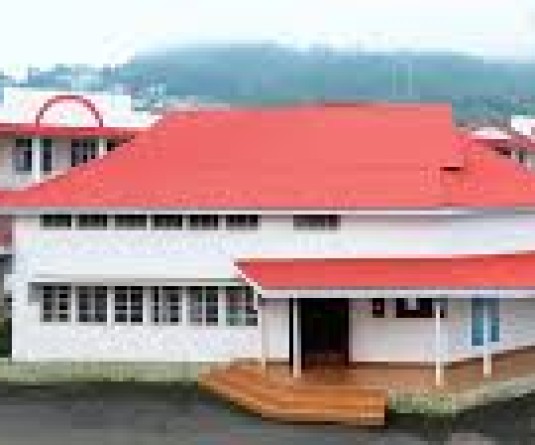Governor La Ganesan at the inaugural programme of workshop on Hindustan Vocal, Kuchipudi Dance, Naga Folk and Naga Craft held at CTC Hall, Chümoukedima on March 26.

Chümoukedima, March 26 (MExN): With the joint initiative of SPIC MACAY and National Institute of Technology, Nagaland, the inaugural programme of the workshop on Hindustan Vocal, Kuchipudi Dance, Naga Folk and Naga Craft held at CTC Hall, Chümoukedima on March 26. The workshop will be held till April 7.
Gracing the occasion as the chief guest, Governor of Nagaland, La Ganesan said, ‘India, with its diverse and rich heritage, offers an abundance of artistic expressions that encompass not just the visual or the tactile but also the profound and the sublime that touches our souls.’
“Hindustani music and Kuchipudi dance are treasures of our national cultural heritage that have enchanted and enthralled audiences worldwide for years. They are not just art forms but are integral to our country’s cultural landscape, and goes beyond the barriers of language and geography,” he stated.
“Similarly, Naga Folk music and crafts are not just expressions of creativity but they also carry testimonies of the rich cultural history and legacy of Nagaland. They are an integral part of our identity, showcasing our traditions and our unwavering spirit. The folklore, the music, and the craftsmanship offer a glimpse into the soul of Nagaland, reflecting the harmony between mankind and nature that is so characteristic of our way of life,” the Governor added.
He mentioned that, the amalgamation of these diverse art forms in today’s workshop is a testament to the unity in diversity that forms the cornerstone of our great nation. It is a vivid reminder that, despite our varied backgrounds, it is bound by a common thread of humanity and artistic expression, he mentioned.
In addition, Ganesha said that music and the arts also hold a profound power in fostering peace, unity, and national integration, serving as a universal language that transcends boundaries, whether they are cultural, linguistic, or geographical. Through music and the arts, communities can express shared values and aspirations, laying the foundation for a collective identity. This is crucial for national integration, especially in a multi-ethnic, multi-cultural nation like ours, where finding common ground is essential for peace and unity.
Further, he urged all to immerse themselves in the experience, “to learn, share, and contribute to keeping the vibrant legacy of our culture alive for the future generations and be ambassadors of our heritage, promoting unity, harmony, and respect through the universal language of art and culture.”
Highlights of the inaugural programme included- Violin (Carnatic) performance by padmashree Awardees and Sangeetha Kalanidhi A Kanyakumari; ‘Vatapi ganapatim bhaje’ in Hamsadhwani raga; ‘Pancharatnam’; Songs by Subbulaxmi; Bhajans such as ‘Raghupati Raghava’, Payoji Maine Ram Ratan Dhan Payo’.






